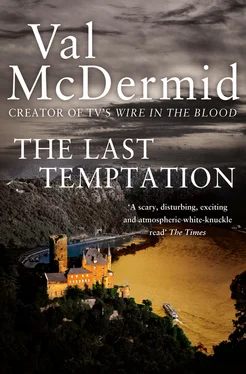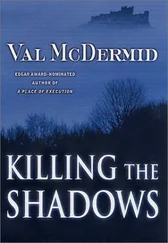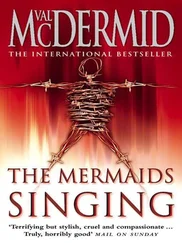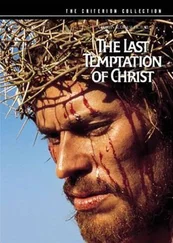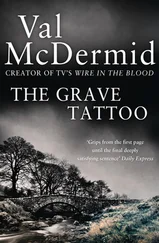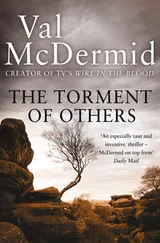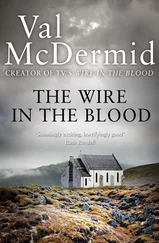Now came the part Marijke hated. The body was replaced on its back and the dissection began. She slid her eyes sideways. To the casual observer, it would look as if she was paying close attention to what de Vries was doing, but in reality, she was staring at the tray of instruments as if her life depended on committing them to memory in some perverse version of Kim’s Game. The dissecting knife, for incisions and removal of organs, with its metal two-piece handle and four-inch disposable blades. The brain knife with its fine twelve-inch blade for making thin sections of the delicate tissue. The scissors and scalpels and forceps for things she didn’t want to think about. The oscillating-bladed Stryker saw for cutting bone without destroying the surrounding tissues. The T-shaped chisel called the skull key, for extra leverage when prying apart the bones of the cranium.
So it was she missed the moment when de Vries cracked open the chest and the pale distended lungs ballooned out of the cavity. ‘I thought so,’ he said, satisfaction creeping through his professional demeanour and demanding her attention like a leg-winding cat.
‘What’s that?’ She dragged her reluctant eyes from the surgical tools.
‘Look at the state of the lungs.’ He poked a finger into the grey tissue that bulged through the space between the ribs. It left a clear indentation. ‘He’s been drowned.’
‘Drowned?’
De Vries nodded. ‘No doubt about it.’
‘But you said he died in the position where he was found.’
‘That’s right.’
Marijke frowned. ‘But there was no water there. He was tied to his office desk. It’s not like it was a bathroom or a kitchen. How could he be drowned?’
‘Very unpleasantly,’ de Vries said, his tone neutral, his eyes fixed on the work of his hands. ‘Judging by the state of the mouth and the windpipe, I think some sort of funnel or tube was forced into his airway and water was poured down it. You said he was tied down, and I can see the marks of the ligatures for myself. He couldn’t have put up much of a struggle.’
Marijke shuddered. ‘Jesus. That’s cold.’
De Vries shrugged. ‘That’s your province, not mine. I just read what the body has to say. Thankfully, I don’t have to deal with the mind behind it.’
But I do, the detective thought. And this is a very nasty one. ‘So the cause of death would be drowning?’ she asked.
‘You know I can’t say that for sure at this stage. But it certainly looks that way.’ De Vries turned back to the cadaver, slipping his hands into the abdominal cavity and lifting out the mass of the internal organs.
Drowning, she thought. Not something you’d come up with in the heat of the moment. Whoever did this, he planned it very carefully. He came equipped for what he had to do. If this was a crime of passion, it was a very strange passion indeed.
Carol closed the heavy door of her flat and leaned against it, kicking off her shoes. She crossed one leg over the other and bent to massage the liberated toes. She’d spent the whole day tramping around the back streets of Stoke Newington, Dalston and Hackney, looking at the world around her with the eyes of a criminal. It wasn’t so different from the cop’s take on the world. They were both looking for possible escape routes, possible targets of crime, possible gaps in security. But before, she’d been the hunter. Now she had to calculate what the quarry might need.
She’d memorized back alleys, vacant lots, hiding places. She’d checked out pubs with rear exits, kebab shops whose back door might be accessible to someone with quick enough wits and sharp enough elbows, gypsy cab firms whose drivers parked round the corner from the main drag, ready for a swift getaway. She’d learned which houses offered easy access to back gardens that could double as escape routes. She’d spent three days among the traffic fumes, stale cooking smells and cheap perfume of the streets, dressing to blend with the heterogeneous mixture of those hoping they were upwardly mobile and those living with the knowledge they were going nowhere but down. She’d eavesdropped on accents from five continents, checked out who attracted attention as they passed by, who was ignored.
It wasn’t anywhere near enough, but it would have to do. Tomorrow she would spend polishing her performance, then it would be time for the real thing.
It was like picking a scab. The agony was exquisite, but the activity was irresistible. Tadeusz sat at the polished slab of burl oak that served as the desk in his home office, sorting through his photographs of Katerina. There were the public shots; the pair of them arriving at a film premiere, her radiant looks causing the snappers to take her for some minor starlet; a charity dinner, Katerina feeding him a piece of lobster with her fingers; Katerina at the formal opening of the day-care centre she’d helped raise funds for. There was a series of studio portraits that he’d persuaded her was the only birthday present he wanted from her. That the camera had loved her was clear from their sensuous quality.
Then there were the dozens of snaps he’d taken of her, some casual, others painstakingly set up. Katerina in Paris, posed with her head at an angle so the Eiffel Tower was reflected in her mirrored shades; Katerina in Prague, Wenceslas Square the dramatic backdrop; Katerina in the market place in Florence, rubbing the gleaming bronze nose of the wild boar statue for luck; and Katerina in a bikini sprawled on a sun lounger, one leg cocked at the knee, reading a trashy airport novel. He couldn’t even remember if that last one had been taken on Capri or Grand Cayman. For some reason, it had ended up out of sequence among the Prague photographs. So much for every picture telling a story.
He’d always meant to put the photographs into albums, but there had never been time while she’d still been alive, while he’d been adding to the archive constantly. Now, he had all the time in the world to arrange the images of Katerina in whatever sequence he desired. Tadeusz sighed and reached for one of the leather-bound albums he’d chosen himself earlier that week from a photographic supplies wholesaler. He flipped open another wallet of snapshots and began to trawl through, discarding the images of landscapes and interesting architectural details, winnowing out the best shots of Katerina and arranging the first three on the page. Painstakingly, he mounted them, then wrote next to them in his neat hand, ‘Katerina, Amsterdam. Our first weekend together.’ He’d have to check the exact date in his diary, a realization that angered him. It seemed wrong that every detail wasn’t carved in memory, a small token of disrespect that Katerina didn’t deserve.
The buzz of the video entryphone interrupted him and he closed the album, getting to his feet and crossing the hall to the small screen sunk discreetly into the wall by the apartment door. Darko Krasic stood outside, half-turned towards the avenue, his eyes shifting back and forth in a constant surveillance. Even here in the respectable streets of Charlottenburg, his lieutenant didn’t take his safety for granted. Krasic always quoted his father, a fisherman. ‘One hand for the boat, one hand for yourself.’ Tadeusz didn’t mind what some might have seen as paranoia; as far as he was concerned, it was directed towards keeping him safe as much as Krasic, and therefore a bonus rather than a cause for concern.
He buzzed Krasic in at the ground floor, putting the apartment door on the latch and heading through to the kitchen to make a pot of coffee. He’d barely taken the beans from the freezer when Krasic strode in, head down and shoulders wide, a man looking for somewhere to put his belligerence. He knew better than to direct it at his boss, however. ‘We’ve got trouble,’ he said in a surprisingly calm voice.
Читать дальше
